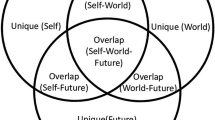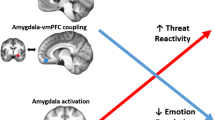Summary
Mood and anxiety disorders are highly prevalent psychiatric disorders, especially in women, and they are associated with significant morbidity and mortality. A considerable literature indicates that vulnerability to depression and anxiety disorders is markedly increased by childhood abuse, e.g., physical, sexual, and psychological abuse, as well as adulthood stressors, e.g., death of a spouse. Little is known about the developmental neurobiological mechanisms by which childhood abuse increases the susceptibility of women to the development of depression and anxiety disorders in adulthood. Recent research on the effects of adverse early life experiences on central nervous system (CNS) stress systems has provided a greater understanding of the link between childhood abuse and susceptibility to mood and anxiety disorders. Specifically, early life traumatic events, occurring during a period of neuronal plasticity, appear to permanently render neuroendocrine stress response systems supersensitive. These physiological maladaptations likely represent long-term risk factors for the development of psychopathology after exposure to additional stress.
Similar content being viewed by others
Author information
Authors and Affiliations
Additional information
Received October 15, 2002; accepted November 17, 2002 Published online January 17, 2003
RID="*"
ID="*" Presented at the First World Congress on Women's Mental Health, Berlin, March, 2001; Symposium: Understanding the interaction of stress and gender in the prediction of major depression and treatment response.
Acknowledgements This work is in part supported by NIMH grants MH-42088 and MH-38599.
Correspondence: Charles B. Nemeroff, MD, PhD, Department of Psychiatry and Behavioral Sciences, Emory University School of Medicine, 1639 Pierce Drive, WMB, Suite 4000, Atlanta, GA 30322, U.S.A.; e-mail: cnemero@emory.edu
Rights and permissions
About this article
Cite this article
Penza, K., Heim, C. & Nemeroff, C. Neurobiological effects of childhood abuse: implications for the pathophysiology of depression and anxiety. Arch Womens Ment Health 6, 15–22 (2003). https://doi.org/10.1007/s00737-002-0159-x
Issue Date:
DOI: https://doi.org/10.1007/s00737-002-0159-x




